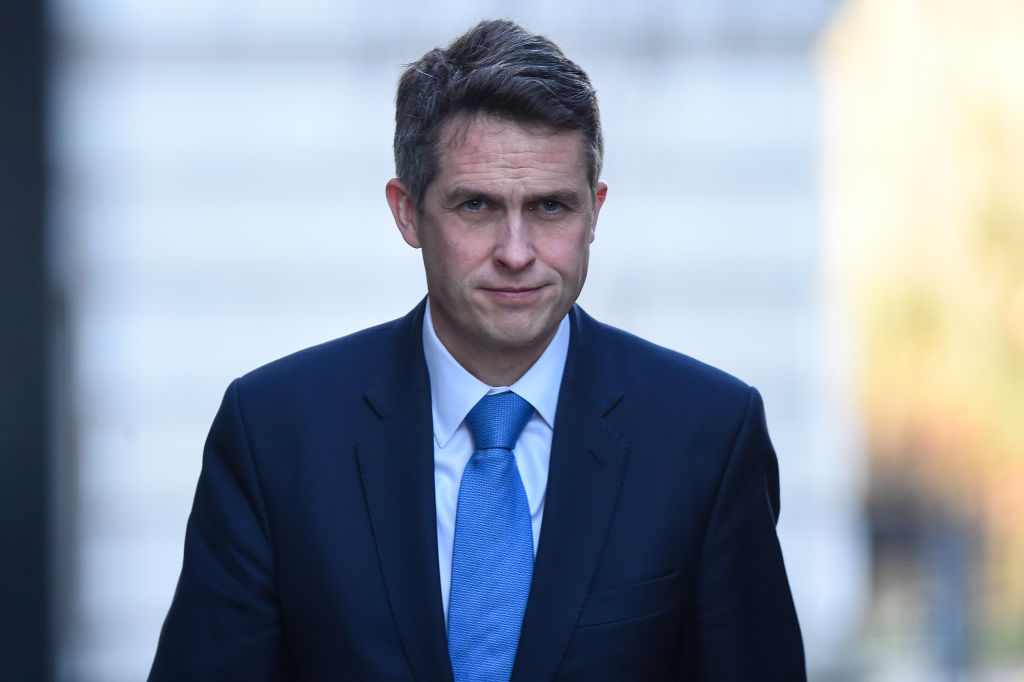All over the country, large numbers of businessmen are anxious. They do not know when – if ever – trading conditions will return to normal. So there is a squeeze on costs, a clampdown on inefficiency and – to use the euphemism – employees whose performance might have been acceptable in easier times are ‘let go.’ This is understandable. But there is an exception. In one very important enterprise, an employee who could never have made a worthwhile contribution somehow survives. What does Gavin Williamson have to do before he is replaced?
This is a man who can neither think in private nor perform in public. His response to any upcoming difficulty is simple: march straight into it. It would appear that he has never heard of evasive action, let alone subtlety and planning. So why does Boris keep him?
There are three possible explanations. First, no prime minister likes to be told whom to hire and fire; stubbornness comes easily to Boris. Second, there is loyalty. Boris has few intimates and gives his trust warily. But where he does trust, he also values. The third possible reason is much more cynical. The PM is determined that children should return to school. He is also aware that a lot could go wrong. So he might have decided to leave Mr Williamson in post to absorb all the blame and abuse.
If so, and though it might sound cunning, this is a thoroughly bad idea. In these challenging circumstances, we need an education secretary with authority and grip; one who could command respect. But no one takes Gavin Williamson seriously. This could inflict lasting damage on the government.
Up to now, the opinion polls have been surprisingly lenient on the government. Many observers had expected a harsher judgment. It may be that with many voters, the Labour party has not yet purged its contempt for the crimes of Corbynism. Anyway, it is still early in the Parliament. There is still plenty of time for recovery, or deterioration. But the danger for the Tories is that many voters will have formed lasting impressions: negative ones. Barnard Castle is an example. Exam results could be another one. If there is neither a serious second spike nor an economic disaster, this can all be overcome. But those are sizeable ‘if’s. The government would be advised to safeguard its reputation for competence and decency, especially up against Keir Starmer.
One hears the odd grumble about Sir Keir, from Labour supporters who would have preferred a more aggressive approach. There are parallels with some younger Russian courtiers in 1812/13, as described by Tolstoy in War and Peace. They did not think much of Kutuzov’s apparent passivity. He seemed content to sit on his horse and watch the world go by while Bonaparte pressed onwards – towards self-destruction. If everything does go wrong, the Labour leader’s statesmanlike approach and reluctance to revel in partisan politics could catch the public mood. Bojo-parte might find that harder. especially if he sticks by ministers of failure.
Competence and decency: there is nothing indecent about poor, hapless Mr Williamson, except his determination to hang on to a great office for which he has proved wholly incompetent. Perhaps Boris’s sojourn among Highland mountains will have persuaded him of the folly of allowing molehills to sit in Cabinet. One trade unionist has been quoted as hoping that Mr Williamson will survive, because he is a ‘useful idiot’. Idiots may have their uses. These do not include good government.






Comments